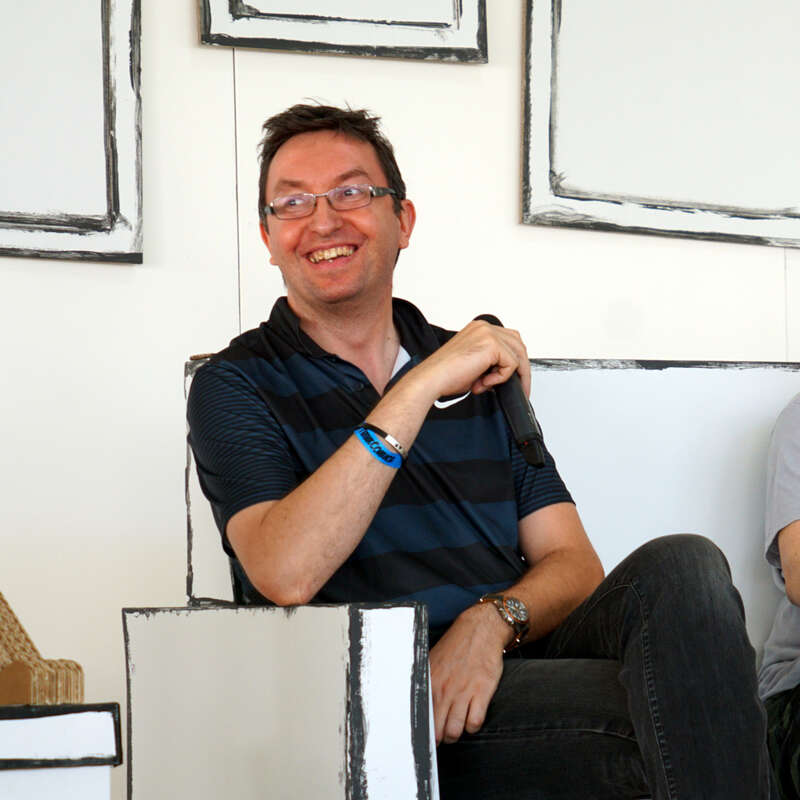Social media platforms and the colossal scam against content creators

- 2024-03-27
- Sebastian Zdrojewski
- Creators
- Photo by Thought Catalog on Unsplash
Creators, Influencers. People who have dedicated, more or less, a part of their lives to obtaining the necessary skills to invent a job that was previously not even remotely conceivable. As it was for 'DJs' in the 1990s, today we have Youtubers, VTuber, Streamers, Cosplayers, and Content Creators of all sorts. Aided by the spread of the Internet, first, and then by smartphones, the promise of Social Media has arrived for them: the world at their fingertips, a place where they can create their own community of 'followers' and friends with whom they can stay in touch, to whom they can present their content, their creativity in pocket format.
A job that requires almost unceasing commitment and constancy, to continue to create content that can satisfy the palate of one's followers, that keeps interest alive, originality alive, and that demonstrates the value of one's creativity. It is a job that, over time, has become complicated by algorithms designed and created specifically to make it more and more difficult to frame one's audience: the platform becomes the enemy, to the already difficult work is added the need to continuously 'reverse engineer' the algorithm, to understand how to exploit it and how to continue to offer one's content to the public.
In a sea magnum of difficulties, fake profiles, scams and bots, Content Creators do their utmost to reach a level of popularity that allows them to monetise their work - because we are still talking about work. From those with tens of thousands of followers, to those with hundreds of thousands or millions of followers, what changes are undoubtedly the earnings and the severity of the situations to be handled.
Between helplessness and resignation, content creators are faced with those who publish their content without attribution (in clear violation of all platforms' terms of service), cloned or even stolen profiles. In these cases, those who cheat or engage in illicit activities are obsessive compulsive innovators who do not have to 'waste' time building content and can devote all their time to understanding how to exploit platforms to their advantage.
But the real fraudster is not the individual who steals profiles or the organisation that sets up botnets of fake accounts for 'click farms' (perhaps we will come back to this in the future).
The real scammer is none other than the 'User Generated Content Platform' itself.
Behind unfulfilled promises of 'accessibility and visibility' to its followers and the general public, the Platform takes the liberty of applying its own 'community rules' or 'terms of service' at will. With little or no possibility of appeal, with no 'Client' or 'Creator' support, users have no defence in the face of tragedies such as finding their profile suspended or, worse, deleted.
Years of work and investment to create content completely vanished into thin air. The motivation behind such developments is also unclear: a warning? An algorithmic issue? Violation of terms and conditions? Which ones? According to which principle? On the basis of which verification of actual violation?
Can an appeal be made? With a good dose of luck, perhaps. If one is lucky, someone will read one of the contact or appeal messages but, as far as we can see, the only route that allows some kind of feedback is a letter from a lawyer that has to reach the right contact ('deja-vu'?), be read, understood (again, 'deja-vu') and possibly evaluated.
Result? TikTok, Meta, X/Twitter, Pinterest, Tumblr are conscious and unconscious tyrants of the social groups they host (with few exceptions).
What is even more ridiculous is the increasing ease with which it is possible to have a 'real' profile shut down by reporting it as illegal content, copyright infringement (yes, even to the original author) or any other form of inappropriateness. Everything is automated, everything is contrary to what is stated in the terms and conditions of use: those who publish (or re-post) others' content without attribution have more power than those who create the content themselves.
And let's be clear about one thing: Content has substantial economic value for platforms. It keeps the audience attached to the platform, giving the latter the opportunity to re-post more advertising to the visitor. The more quality content, the more views, the greater the platforms' profits.
According to a study published in late 2023, in the 0-17 age group, for the US market alone, Platforms boast profits of billions of dollars per year[i]. A separate chapter should be opened on the subject of 'child exploitation'.
Profits, specifically, generated on copyrights that are constantly and incessantly violated, which Platforms abuse by cheating Creators; sometimes even charging them.
Creators and Influencers, regardless of their size and the reputational problems they may have, live off their image. Losing one's publication channel out of the blue means having to start from scratch. Sometimes even in a negative way.
The well-established vices imposed by the 'UGC' platforms have only worsened over the years. As part of the process that Cory Doctorow[ii] has called the "enshittification[iii] of social media", platforms prefer to make it easier for those who want to create fake profiles and republish content in violation of copyright, rather than protect original content creators. The process of 'profile verification' borders on the ridiculous: going from the fee proposed by 'X/Twitter' (where, rather than a verified profile, we could call it a paying profile) to the 'verification process' to obtain Instagram's infamous blue tick; which requires 'established visibility in the network and traditional media' (spoiler alert: just buy articles on channels deemed valid, such as Business Insider or Forbes, just to name two, on which it is possible to publish sponsored content) and have at least 10k followers (on average), the majority of which could easily be bots, given the amount of 'fake followers' services found on the Net.
The excuses behind which the Platforms hide (code of conduct, terms and conditions, 'fair use', 'Section 230') collapse ruinously under the weight of the fluff with which they have been written: copy-paste in 'legalese' of a text that no one will ever check. But even if I do check... who makes sure that what I post is really mine or that I have the rights to publish it? At worst what I post will be removed under DMCA, and if the profile is deleted.... just get a new Gmail inbox and create a new profile. Or two. Or a hundred.
The fact that there is no challenge or appeal process supported by facts and evidence is ridiculous, and only and exclusively confirms that they let the scams run because 'after all, it's a free service'. However, if a small business were to appropriate other people's content or sell services without it being provided properly, then yes, there would be recourse.
This post came about following the observation of yet another case of a Creator being banned on Instagram, but similar cases are counted monthly by the dozens, across all platforms. We are not going to name them because we do not formally represent the person in question, but we can bring the voice of the category of Creators and Influencers in digital: content counts, creativity counts, because without them, these platforms would not exist and would not have the power that they, instead, punctually usurp.
In our opinion, we need to establish and recognise a procedure that allows trade associations, agencies or individual creators to exercise their rights. A procedure that takes place through channels that do not respond with generic chatbots or by 'number of requests', but in compliance with international conventions on e-commerce, copyright, and the rights of those who use the platforms professionally. Especially if we consider that they are often forced to pay them in order to promote their own content.
References
i “Social media platforms generate billions of dollars in revenue from U.S. youth: Findings from a simulated revenue model”, Amanda Raffoul, Zachary J. Ward, Monique Santoso, Jill R. Kavanaugh, S. Bryn Austin, 27 December 2023, https://doi.org/10.1371/journal.pone.0295337
ii Cory Doctorow, Wikipedia, https://en.wikipedia.org/wiki/Cory_Doctorow, Mastodon https://mamot.fr/@pluralistic
iii “Enshittification” su Wikipedia https://en.wikipedia.org/wiki/Enshittification
